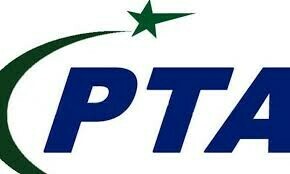The Pakistan Telecommunication Authority (PTA) said that it was ensuring IT exporters had “uninterrupted access” while staying “connected and safe” when delivering internationally, a press release issued on Thursday said.
The statement, seen by Dawn.com on Friday, comes amid an ongoing slowdown of internet services in the country, affecting both users and businesses.
Last month, the business community and internet service providers (ISPs) had alleged that the government’s efforts to monitor internet traffic — including a so-called ‘firewall’ — had caused the slowdown of digital services, resulting in economic losses.
While the country’s information technology minister, Shaza Fatima Khawaja, had confirmed that the government was upgrading its “web management system” to cope with cyber security threats, she has categorically denied reports of the government “throttling” the internet.
PTA had stated that internet services across the country were expected to remain slow till early October as the submarine cable responsible for the disruptions would likely be repaired by then.
On Thursday, a delegation from the Pakistan IT Association (P@SHA) visited the PTA headquarters to explore strategies for supporting IT companies and software houses, aiming to ensure a smooth and conducive business environment, the PTA press release said.
PTA Chairman, Major General Hafeez Ur Rehman, assured the delegation that the authority was “proactively working on ease of doing business for the IT sector”.
“PTA is cognisant of the fact that uninterrupted access is fundamental for efficient working of IT industry and is ensuring that IT exporters stay connected and safe while delivering internationally,” the statement said.
“In this regard, IP addresses for VPNs are being registered for software houses, businesses, and IT companies.
“VPN Registration is a one-window operation available at PTA and (Pakistan Software Export Board) websites that takes two to three days and is free of cost,” the statement read.
Last month, IT minister Khawaja had claimed internet speeds were reduced because a large number of people had switched to virtual private networks (VPNs) to access certain apps.
“The issue was limited to a few services on certain apps not downloading, which led a large segment of the population to start using VPNs,” the minister said without either naming the apps or the services that were disrupted.
VPNs are widely used around the world to access content that may be inaccessible or blocked for internet users in their home country.
The minister had explained that when a large number of people used VPNs to bypass Content Delivery Networks (CDNs) or local caches and connect directly to live servers, it put additional pressure on the system and ultimately slowed down the internet.
“I can say under oath that the government neither shut down nor slowed down the internet,” she said.
However, a technical analysis conducted by a digital rights group earlier this month found that Pakistani users accessing the internet via VPNs last month got better download speeds and faced almost no disruptions.
In a recent report, Bytes For All (B4A) said a network health scan conducted across various internet service providers (ISPs) in Pakistan revealed “significant” differences in performance between VPN and non-VPN connections.







